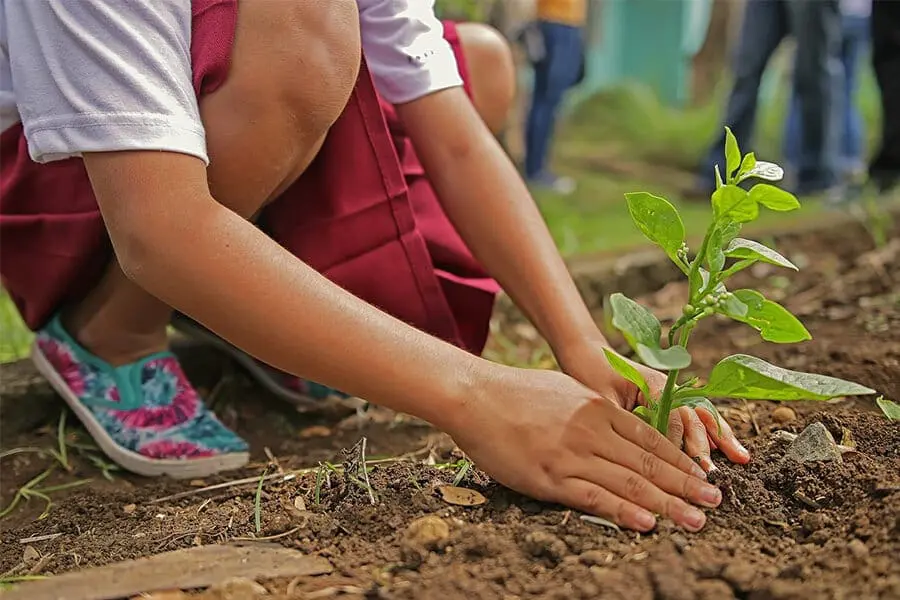

Living an environmentally friendly lifestyle is easier than you may think.
Happy Earth Day! For one day in April each year, communities around the world celebrate our world and everything it gives to us. We can honor the planet year-round by making sustainable (and surprisingly cost-effective) choices every day. Here are a few tips you can follow to be more environmentally friendly:
1. Recycle
Recycling is one of the simplest steps you can take to start living a greener lifestyle. It’s always safe to toss in plastic bottles and containers, cardboard, aluminum cans, glass bottles and jars, and paper. (Just make sure you give those containers a quick rinse so there’s no food or chemical contamination.) If you’re unsure whether an item is recyclable, check your city’s website for guidance.
2. Compost
Composting is easy! Just layer your organic “waste”—kitchen vegetable scraps, garden clippings, dry leaves and paper—in a well-aerated bin. Keep the pile moist (not soaked) and mix the layers every week. This will reduce your waste and turn scraps into nutrient-rich soil.
3. Start a home garden
You can save money on food by using your homemade compost as fertilizer and planting vegetables right in your yard. Several vegetables can be regrown from their own scraps, such as lettuce and green onion. Vertical gardens are a great option for those who have limited yard space.
4. Use energy-efficient lightbulbs
LED bulbs have revolutionized energy-efficient lighting. Though the bulbs initially cost more than traditional bulbs, they use significantly less energy and have a much longer life expectancy—up to 100,000 hours (that’s over 11 years)!
5. Load up washing machines
Washing machines for our clothes and dishes make life a lot easier, but they use a lot of energy and water. Make sure to only run them when they are completely full and be careful not to use more detergent than necessary.

6. Drive smarter
Your car knows how to put out a lot of emissions, but you don’t need to buy an electric or hybrid model to drive a little cleaner. (Though it would help!) Monitor your fuel efficiency by observing the speed limit and keeping your tires inflated properly. Stay up to date on oil and air filter changes to keep impurities out of the air.
7. Avoid excessive waste
Spend a week taking note of how much waste you create. Reduce your waste by switching to reusable water bottles and cloth napkins. Plastic cups and cutlery can be used multiple times before being thrown away. You can also bring your own reusable containers to restaurants for leftovers, which cuts down on waste and saves the restaurant money.
8. Switch to reusable bags
Single-use plastic bags can harm animals on land and in the sea, so we recommend investing in a few reusable bags for your shopping needs. If you do need plastic bags, reuse them by lining small trash cans around the house or picking up dog waste outside. You can bring your plastic bags back to most grocery stores for recycling, too.
9. Avoid runoff
Runoff should be avoided wherever you are, but it is especially problematic for those of us living near a body of water. Keep our waterways clean by avoiding washing your car and doing oil changes in the driveway. Always pick up pet waste. Check your county’s website to make sure you’re following fertilizer laws in your area and limit the use of pesticides and fertilizers on your lawn.
10. Conserve energy
Don’t waste electricity! Check that your outside lights are turning off in the day and use smaller, more energy-efficient lamps to light up your home in the evening. Remember that even idle electronics are sucking up energy, so instead of letting your computer go to sleep, turn the power off when you’re done using it.
Committing to changing just one habit can lead to a greener lifestyle, and if everyone makes one change, the impact could be huge! Let’s work together to give back to our planet all year long.
